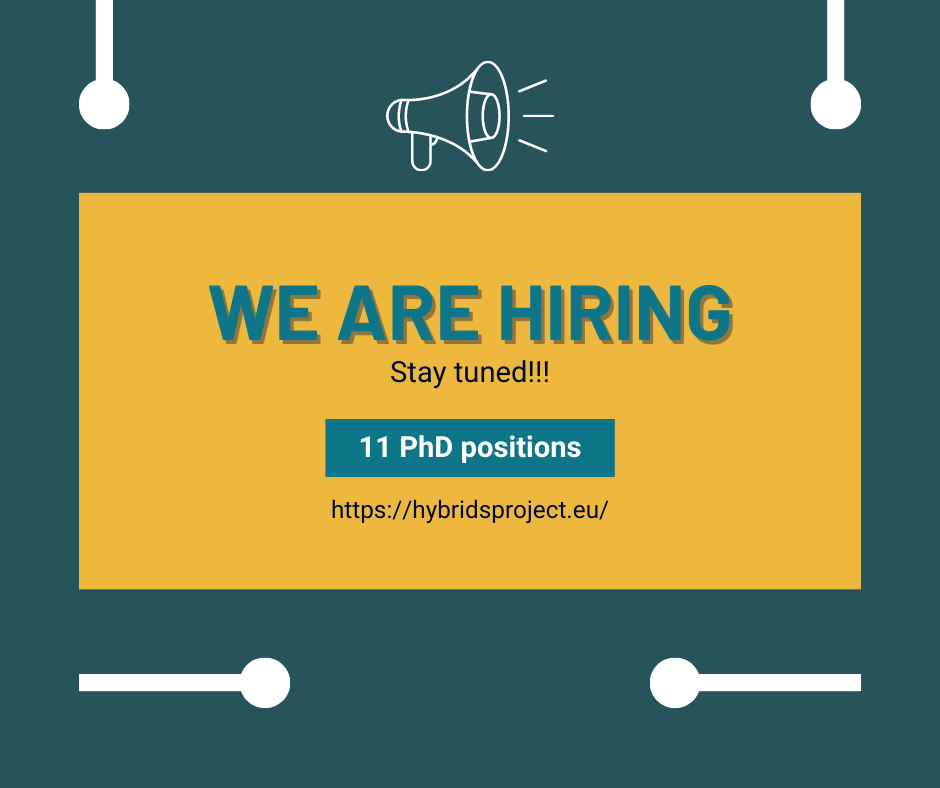Starting next month, the initiative Hybrid Intelligence to monitor, promote and analyze transformations in good democracy practices (HYBRIDS) will launch a call for 11 positions for Ph.D. students who wish to conduct research using different deep learning techniques for the analysis of public discourse on crucial global issues, such as health, the climate crisis, European skepticism or immigration, among others.
The call for applications includes 11 positions in different areas, each one with its own individual research project, to tackle hate speech and misinformation through different research lines. The positions will be based on seven European countries, including Spain, Portugal, Italy, Netherlands, France, Germany, and United Kingdom.
The selected Ph.D. students will be hosted in nine renowned institutions such as the universities Queen Mary University of London, Radboud Universiteit, Universidade da Coruña, Universidade de Santiago de Compostela, Université Caen Normandie, and Universidade de Evora, the R&D centers Fondazione Bruno Kessler and GESIS Leibniz-Institut für Sozialwissenschaften, and Newtral Media Audiovisual.
The detailed information on the profiles required for the positions will be disclosed in a few weeks.
What is the HYBRIDS initiative?
From its very initial conception, HYBRIDS has assumed the need for a multidisciplinary research team, capable of transferring the knowledge acquired in the human and social sciences to the technological tools of Natural Language Processing (NLP) and Deep Learning (DL) algorithms. Pablo Gamallo, an expert in computational linguistics heading the project from the leading institution in Spain (CiTIUS – Research Centre on Intelligent Technologies), states that “the ultimate goal is to generate new neuro-symbolic interpretation systems, something that we know as ‘hybrid intelligence”. The researcher sums up the essence of the project: “the idea of hybrid intelligence consists of combining the high computational capacities of recent neural algorithms with symbolic representations that model human knowledge, thus paving the way to overcome the shortcomings of current artificial intelligence methods”, he explains.
However, despite these advantages, very little research has been published to date in the field of hybrid systems; mostly due to the difficulty of finding highly qualified personnel in these disciplines, traditionally as distant as computer engineering, social sciences, or linguistics. The launch of HYBRIDS (a Marie Skłodowska-Curie Doctoral Network funded by the Horizon Europe programme and UKRI) will also contribute to the training of such profiles in hybrid methodologies, who will provide their expertise in this and other social studies with a high potential impact on the sustainability of good democratic practices in Europe.
In this context, the European Union (EU) and UK Research and Innovation (UKRI) have just given its support to a new transnational research project whose scientific aim will be to design and develop new automatic tools to counter the threat of misinformation, based on natural language processing (NLP) and Artificial Intelligence (AI).
Therefore, HYBRIDS is the result of an international consortium led from Santiago de Compostela (Spain) by the Research Centre on Intelligent Technologies (CiTIUS), and it involves a total of 14 members.

